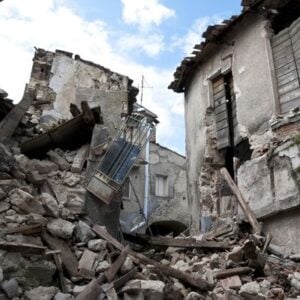The UN Secretary-General expressed full solidarity with the people of Afghanistan following a devastating earthquake that struck the country, offering condolences to the victims’ families and wishing a swift recovery for the injured. The UN team in Afghanistan is actively mobilized to assist those affected in the impacted regions.
Several UN agencies reported widespread destruction across four eastern provinces, including Nangarhar and Kunar. Many houses in remote hillside communities collapsed, often tumbling down terraces onto homes below, causing significant damage.
UNICEF highlighted that the timing of the earthquake—late at night—contributed to high casualties, as families were asleep when their homes collapsed. The UN Humanitarian Air Service has scheduled additional flights between Kabul and Jalalabad to increase personnel and cargo movement for relief operations.
Witnesses noted the quake occurred around midnight, raising concerns that many people may still be trapped under rubble. UNICEF reported that numerous children were among the casualties, and rescue efforts were hindered by poor phone and signal connectivity.
The earthquake’s epicenter was shallow, about eight kilometers underground, causing tremors felt not only in Kabul but also in Islamabad, Pakistan. Various UN agencies, including UNAMA, OCHA, and WHO, are providing assistance on the ground.
The World Health Organization reported that its teams are working in hospitals and health facilities to treat the injured and assess urgent health needs, delivering essential medicines and deploying health workers to save lives.
The UN’s presence in Afghanistan, ongoing since 1949, involves coordination led by Resident Coordinator Indrika Ratwatte, overseeing about 20 UN agencies and partners like the World Bank and Asian Development Bank engaged in joint community programmes.
UNHCR indicated that over 2,000 people were likely injured in Kunar province alone, and Jalalabad city may have suffered a very high death toll. The agency is rushing life-saving support including medical supplies, shelter, water, tents, and blankets to affected communities.
UNHCR emphasized that the disaster’s scale far exceeds local capacity to respond, urging global donors to support urgent relief efforts as the crisis compounds Afghanistan’s existing challenges such as drought and large-scale returns of nationals from neighboring countries.
OCHA noted the difficulty aid teams face due to challenging terrain, with some remote communities accessible only by foot. The de facto authorities have deployed heavy machinery to clear roads in affected districts and airlifted critically injured people to referral hospitals.
Isolated communities, particularly in Dewagal and Mazar valleys, remain hard to reach, with travel times up to three hours from cleared roads, complicating rescue and relief efforts.
This earthquake is one of the most severe to hit Afghanistan in recent years, occurring less than two years after a series of deadly quakes in 2023 that killed nearly 1,500 people and caused widespread destruction in western provinces.







